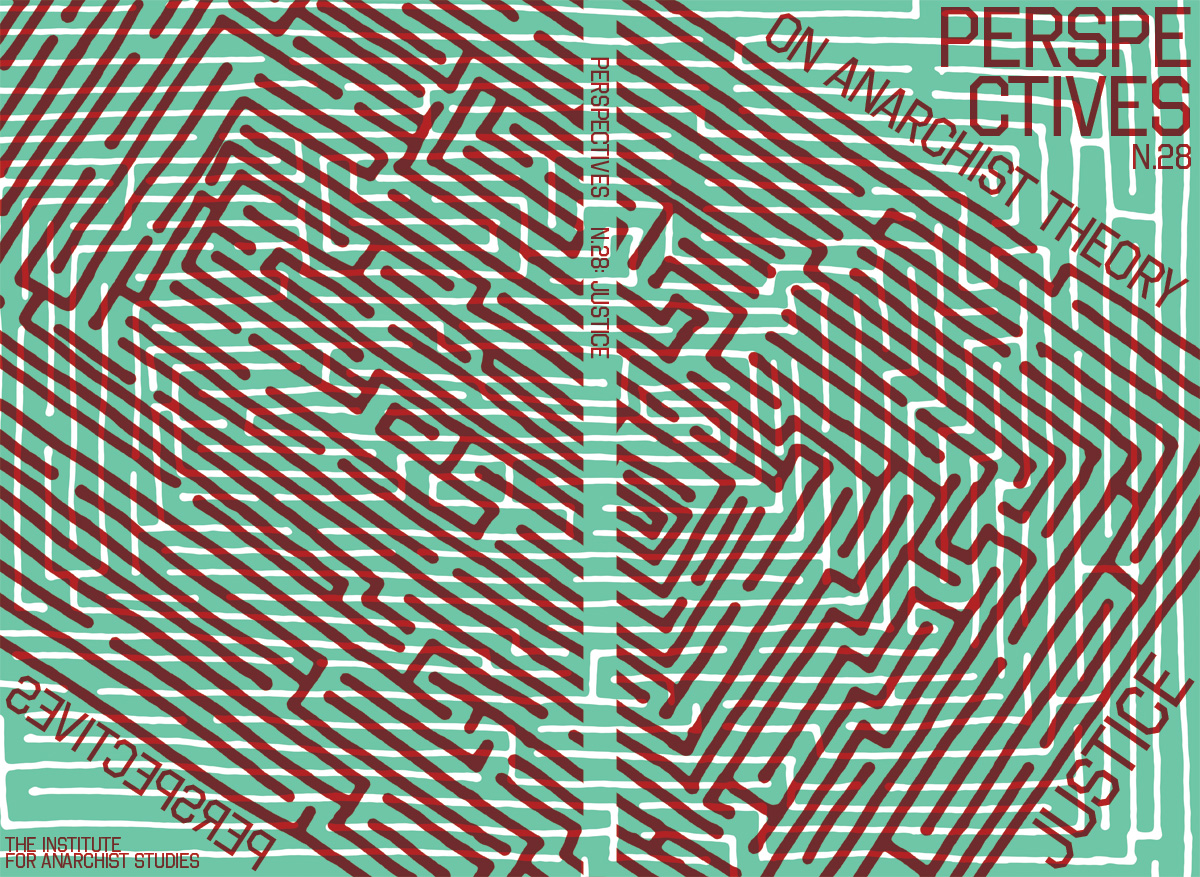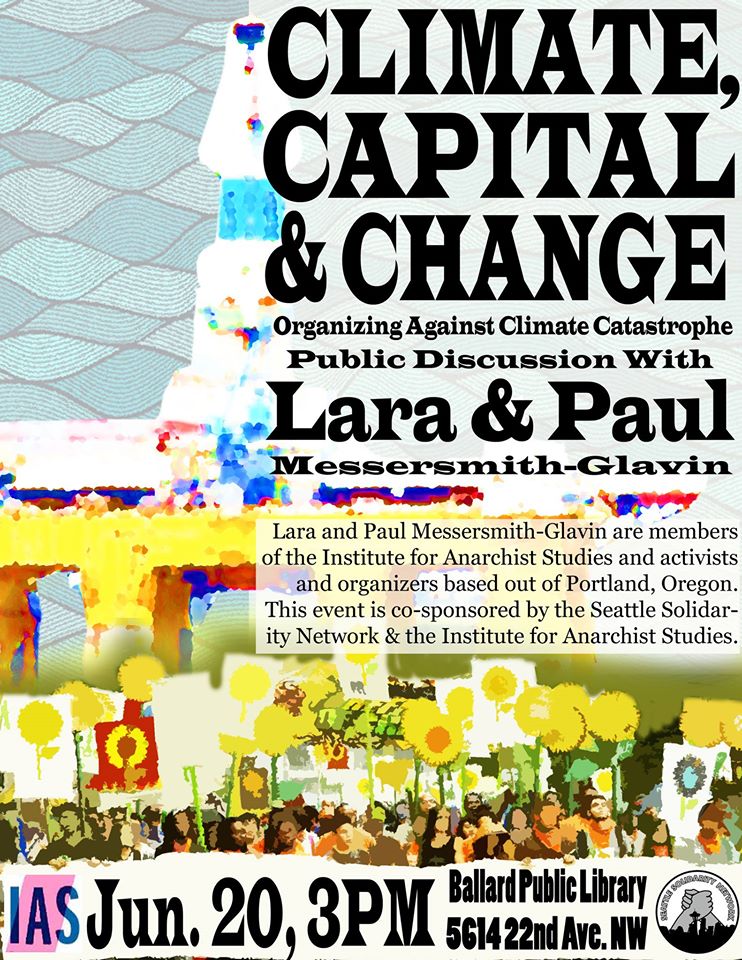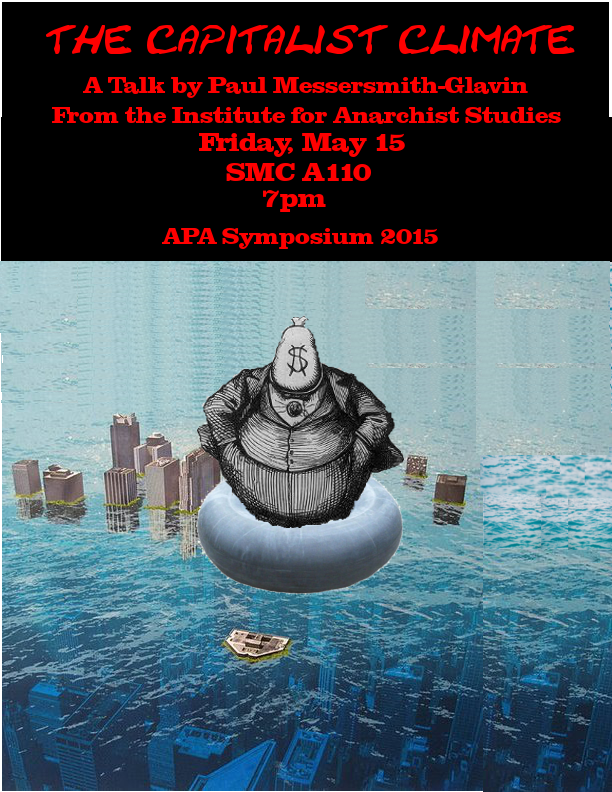Are you an organizer or activist currently engaged in movement work? Are you interested in taking time to reflect on the lessons and ideals of this work in order to help advance anarchist praxis? Do you have ideas, experiences, or questions that you would like to develop and share with a wider audience?
If you answered “yes” to any of these questions, the Perspectives on Anarchist Theory editorial collective would like to hear from you. As the global political terrain continues to shift and tremble, it is crucial that those of us with visions of a free society share our work and ideas so that we can create a solid, common foundation on which to build a better world.

We are currently interested in reading work related to the following themes on Anarcha-Feminisms for our next issue.
On Justice, by Maia Ramnath, Paul Messersmith-Glavin, Sara Rahnoma-Galindo, and Lara Messersmith-Glavin

The introduction to the new issue of Perspectives on Anarchist Theory, available from AK Press.
We know what injustice is.
We know instinctively from the time we’re little. Even if she can’t describe it, a child’s protestations of “That’s not fair!” “He cheated!” “She got more than me!” “That’s not FAIR!” signal what she senses on principle.
But what is justice?
Is it a code of ethics, how you’re supposed to treat people on the individual, interpersonal level? Or is it that which promotes conditions for what is fair and equitable on the structural, systemic level?
Justice, by Irina Ceric

Justice is one of the great aspirational, universal values, meaning of course, that it is also infinitely malleable. Notions of justice have ancient roots, often religious but also secular, and usually framed as part of a broader ethical framework. Variations abound – cultural, historic, ideological – but justice is more often than not equated with fairness, equality and the absence of unfulfilled needs. Yet contemporary notions of justice almost inevitably overlap with law, in terms of both process and content. Justice is implicated in both negative and positive guises – law is the site where injustices are ostensibly remedied as well as the repository for justice guarantees, primarily through constitutional, civil and human rights instruments.
Communitarian and antiauthoritarian traditions resonate deeply with foundational approaches to justice and often add a crucial focus on collectivity and interdependence through notions such as solidarity, mutual aid and cooperative action. Kropotkin argued that social organization is based upon notions of “equity, mutual aid, and mutual support – of common law, in a word.” Radical approaches to justice can help revive – and even expand – the ethical and moral ideals underpinning ancient precepts of equity, generosity and truth in our relationships with one another. In other words, there appears to be a core of justice, as an ideal, a goal or as a good seen mainly through its absence, that progressive organizers and activists ought to claim as our own. In the North American context however, that core is often coopted by the legal system and/or hidden by the cozy relationship between dominant paradigms of justice and the tenets of liberalism.
Freely Disassociating: Three Stories On Contemporary Radical Movements by Kevin Van Meter
I don’t know how to begin because I am no longer sure for whom I am writing. I am concerned that there is no longer an audience to write for.
As a necessary aside: with the disappearance of Left print media and the rise of blogs, there are few places left to publish. Journals with limited circulation or preselected audiences dominate the landscape and the contemporary radical media cannot reach fellow adherents, much less the larger public. Often, it seems that all that remains is a smattering of decrepit publications that speak for the ‘dead institutions’ of the American Left or function as the Daily Worker of a non-existent party — or, and possibly worse, blogs that only run the poorly written position papers of minuscule sects too self-obsessed to see their vanguardism coupled with, and only overshadowed by, their irrelevancy.
Climate, Capital and Change: Organizing Against Climate Catastrophe
Climate, Capital and Change: Lara and Paul Messersmith-Glavin on Organizing Against Climate Catastrophe
Saturday, June 20th, 3PM Ballard Library, SPL, 5614 22nd Ave NW, Seattle, WA
New Issue of Perspectives on Anarchist Theory, on Justice, now available from AK Press!
Perspectives, N. 28, on the theme of justice

Contents:
Introduction, On Justice by Maia Ramnath, Paul Messersmith-Glavin, Sara Rahnoma-Galindo, and Lara Messersmith-Glavin for the Perspectives Collective.
Interviews from an Uprising, by Sarah Coffey reporting from Ferguson, MO where she spent six months.
Angels with Dirty Faces: Three Stories of Crime, Prisons and Redemption
The cover for Angels with Dirty Faces: Three Stories of Crime, Prisons and Redemption, Walidah Imarisha’s new nonfiction book on prisons, coming out on AK Press in conjunction with Institute for Anarchist Studies in early 2016! We’re excited to be involved in editing and publishing this … Read more
Octavia's Brood: Science Fiction Stories from Social Justice Movements Portland Book Release!
Come celebrate the release of the new anthology Octavia’s Brood: Science Fiction Stories from Social Justice Movements!
Featuring readings by:
Co-editor Walidah Imarisha
Contributor Gabriel Teodros
Contributor David F. Walker
Audio recording of Mumia Abu Jamal reading his essay
Onsite collaborative print making with attendees–walk away with a FREE print!
IPRC
1001 SE Division, Portland, OR
Monday, June 15th 7 – 9 pm
Supported by: Independent Publishing Resource Center, Bitch Media, Momentum Alliance, Institute for Anarchist Studies

For the Long Haul: Care, Intention, and Steadiness in Radical Organizing with the IAS' Chris Dixon
For the Long Haul: Care, Intention, and Steadiness in Radical Organizing
Pour le long terme : Prise en charge, dessein et stabilité dans l’organisation radicale
(français ci-dessous)

Sunday, May 24, 11am-12:45pm
Centre d’éducation populaire de la Petite-Bourgogne et de St-Henri (CEDA)
2515 rue Delisle (métro Lionel-Groulx) – Room #123 Montreal, Canada
Anti-authoritarians across North America face many similar challenges as we work to build movements capable of transforming the world: How can we manifest our values through our organizing? How can we move beyond self-selected activist circles? How can we avoid getting stuck in dead-end ways of doing things? Drawing on interviews with experienced organizers, this workshop will distill lessons for developing effective, visionary movements and open a space to discuss what we are learning together.


